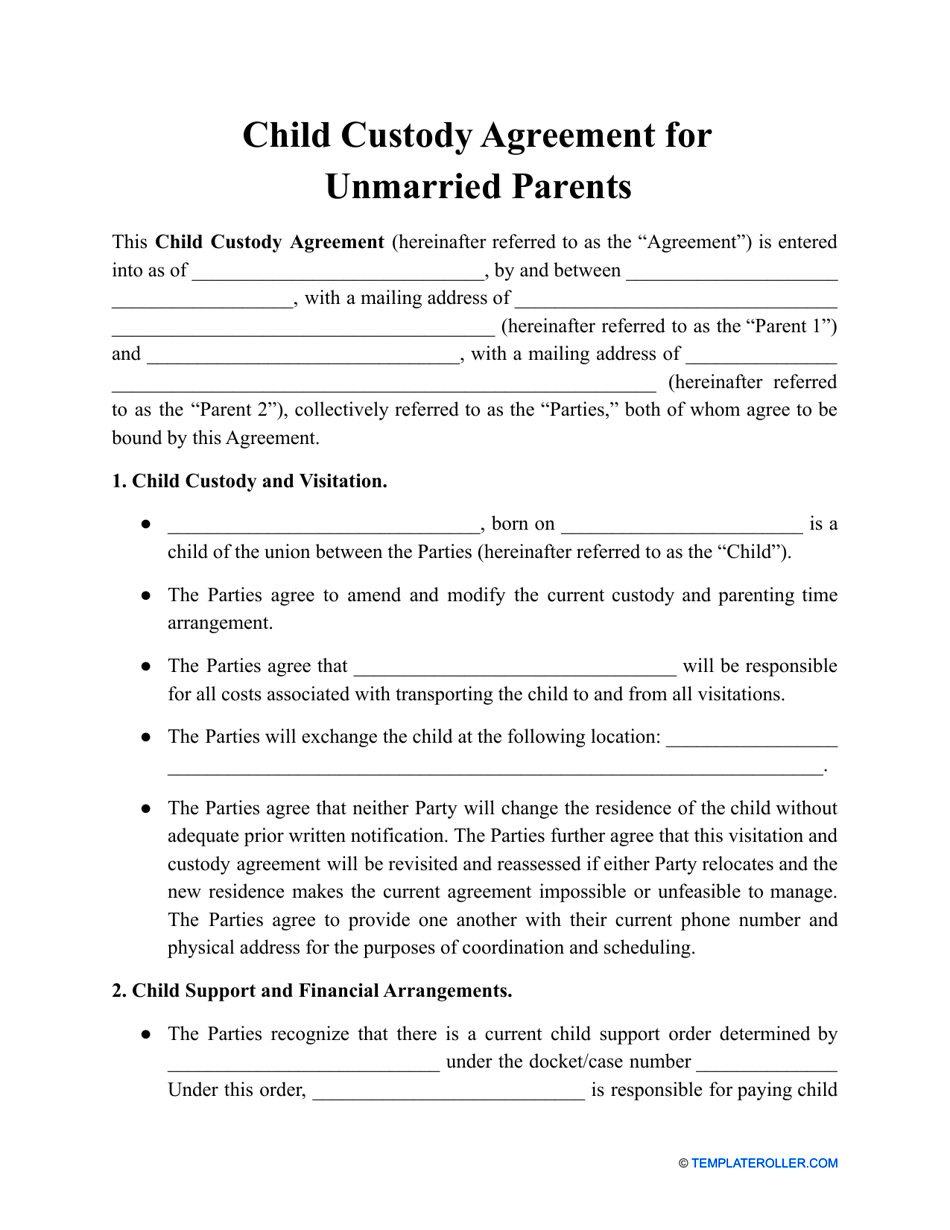Custody Laws for Unmarried Parents in South Carolina
Navigating custody laws in South Carolina can be tough, especially for parents who aren’t married. But if you find yourself in this situation, you’re not alone. The goal of South Carolina’s custody laws is to prioritize what’s best for the child regardless of the parents marital status. From talking to friends who have gone through similar challenges I’ve learned that grasping the fundamentals can really make a difference. It’s essential to understand how these laws function and what actions you can take to ensure a fair arrangement, for your child.
Establishing Parental Rights and Responsibilities

For parents who are not married securing parental rights is the initial stage in the custody journey. In South Carolina a fathers parental rights are not automatically acknowledged if he is not wed to the mother. To establish these rights the father might have to pursue actions, such as.
- Filing a Paternity Petition: This formal process involves the court determining the biological father’s rights.
- Obtaining a Court Order: A court order can formalize parental responsibilities, including visitation and custody.
- Voluntary Acknowledgment: If both parents agree, they can sign a form acknowledging the father’s paternity.
Once paternity is confirmed parents can discuss or involve the court to decide on custody arrangements. While this process can be tough emotionally knowing the steps involved can assist in achieving a fair result.
Types of Custody Arrangements Available

In matters of custody South Carolina provides a range of options to cater to diverse family situations. Here’s a quick summary:
- Legal Custody: This refers to the right to make important decisions about the child’s life, including education and healthcare. It can be shared or awarded to one parent.
- Physical Custody: This determines where the child will live. Physical custody can be joint, where the child splits time between parents, or sole, where the child lives with one parent.
- Joint Custody: Both parents share responsibilities and decision-making, aiming for a balanced arrangement that supports the child’s well-being.
- Sole Custody: One parent is responsible for the child’s care and decision-making, which might be awarded if the court finds it in the best interest of the child.
Different custody arrangements come with their own quirks and the decision usually hinges on how well parents can work together and what the child requires. Based on my conversations with people facing challenges finding a suitable setup can significantly influence a childs well being and sense of security.
How Courts Determine Custody in South Carolina

In South Carolina, the courts have a procedure in place to determine custody that prioritizes the well being of the child. I’ve witnessed how impactful this process can be for families. For instance my neighbor faced a similar situation and grasping these important aspects aided them in navigating the challenges. Here are the factors that the court takes into account.
- Child’s Best Interests: The primary focus is on what arrangement will serve the child’s physical, emotional, and educational needs best.
- Parental Fitness: The court evaluates each parent’s ability to provide a stable and supportive environment. This includes looking into each parent’s lifestyle, history, and involvement in the child’s life.
- Child’s Preferences: Depending on the child’s age and maturity, their preferences might be taken into account. For instance, a teenager’s wishes might be considered more seriously than those of a younger child.
- Each Parent’s Involvement: The court assesses how involved each parent has been in the child’s life and their willingness to continue being involved.
By grasping these elements you can get ready for what lies ahead. Based on my conversations with individuals who have faced similar circumstances being aware of the courts considerations can assist you in presenting a compelling argument for your custody plan.
The Role of Mediation in Custody Disputes
Mediation can really make a difference when it comes to custody conflicts. I’ve seen it assist numerous friends in finding a resolution without the pressure of going to court. In mediation a neutral person steps in to help parents come to an agreement on custody matters and other related topics. Here are some reasons why you might want to think about opting for mediation.
- Less Stressful: Mediation is generally less adversarial than court proceedings. It provides a more relaxed environment where parents can communicate openly.
- Cost-Effective: It often costs less than going to court, which can be a relief for families dealing with financial strain.
- Faster Resolutions: Mediation can lead to quicker resolutions compared to the lengthy court process. This was particularly beneficial for a friend who needed a swift decision for their child’s sake.
- Greater Control: Parents have more control over the outcome as they work together to reach an agreement, rather than having a judge make the decision.
From what I’ve seen mediation has the potential to bring about resolutions and nurture a collaborative co parenting dynamic. It’s definitely something to consider if you’re dealing with a custody conflict.
Legal Steps to Secure Custody
Obtaining custody requires going through a series of procedures and it can be quite daunting to navigate this journey. I’ve witnessed friends struggle with the complexities of the law, but having a grasp on these steps can really make a difference. Here’s a guide to assist you:
- File a Petition: Begin by filing a petition for custody with the family court. This document outlines your request and the reasons behind it.
- Serve the Other Parent: After filing, you’ll need to formally notify the other parent of the petition. This step ensures that both parties are aware and can participate in the proceedings.
- Attend Hearings: Prepare for court hearings where both parents present their cases. It’s crucial to gather evidence, such as witness statements or documents, to support your case.
- Follow Court Orders: If the court grants temporary custody or visitation, it’s important to adhere to these orders while awaiting a final decision.
- Consider Legal Representation: Hiring an attorney specializing in family law can provide guidance and increase your chances of a favorable outcome.
I believe that grasping these steps and receiving adequate assistance can greatly influence the results of your custody battle. While it may be a tough road having knowledge can make the journey smoother.
Impact of Unmarried Parent Status on Child Support
Child support is an aspect that frequently arises in custody conversations, particularly among parents who are not married. Based on my personal experiences dealing with this matter can be quite tough. Unmarried parents may encounter obstacles when it comes to deciding on child support obligations. Lets delve into how being an unmarried parent affects child support matters in South Carolina.
- Establishing Paternity: Before child support can be determined, paternity must be established if the parents are unmarried. This is crucial because it confirms the father’s legal responsibilities.
- Calculation of Support: Child support amounts are typically calculated based on a formula that considers the income of both parents, the needs of the child, and other relevant factors. This formula helps ensure fairness in support arrangements.
- Legal Obligations: Both parents are legally obligated to support their child, regardless of marital status. This means that even if the parents are not together, they must both contribute to the child’s financial needs.
- Enforcement: If a non-custodial parent fails to meet their child support obligations, the custodial parent can seek legal enforcement through the court system. This might involve wage garnishment or other measures to ensure payments are made.
From what Ive seen grasping these intricacies can assist parents in dealing with the challenges of child support more effectively and with greater assurance.
Modifying Custody Agreements
Custody arrangements aren’t permanent. As life evolves circumstances may require adjustments to better meet the needs of a child. I’ve witnessed numerous families adapt their agreements as time goes on. If you’re considering changing a custody arrangement in South Carolina here’s a guide on how to navigate the process.
- File a Petition: To modify an existing custody agreement, you must file a petition with the family court. This document should outline why the modification is needed and how it will benefit the child.
- Demonstrate a Significant Change: Courts require proof of a substantial change in circumstances since the original agreement. This might include changes in a parent’s living situation, job, or the child’s needs.
- Best Interests of the Child: The primary focus remains on the child’s best interests. Ensure that your proposed changes align with what is best for the child’s welfare and development.
- Mediation or Negotiation: Before going to court, consider mediation to resolve the issue amicably. Many parents find that negotiating a new agreement can be less contentious and more efficient.
Drawing from my personal encounters and those of my friends I’ve found that being ready and aware of the legal obligations can streamline the process of changing a custody arrangement making it more efficient and seamless.
Frequently Asked Questions
Dealing with issues related to custody and child support can be quite challenging and it’s normal to have a lot of queries. Drawing from my discussions with families going through these circumstances here are some frequently asked questions and their responses that may provide assistance.
- What if the other parent is not complying with the custody agreement? You can file a complaint with the court, which may lead to enforcement actions or modifications to the agreement.
- How is child support calculated if both parents have irregular incomes? The court considers various factors, including the average income of both parents and the child’s needs. Adjustments can be made based on changes in income.
- Can custody arrangements be modified if one parent moves to another state? Yes, but it may involve additional legal steps, including jurisdictional considerations. It’s often helpful to consult with a lawyer specializing in family law.
- What should I do if I disagree with a proposed modification? Consider mediation to work out disagreements before resorting to court. If mediation fails, you may need to present your case to the judge.
Grasping these commonly asked questions can bring clarity and assist you in maneuvering through the intricacies of custody and support matters.
Conclusion
Dealing with laws and child support matters as an unmarried parent in South Carolina can be tricky. However grasping the key aspects can really make a difference. Based on my observations and the experiences of others who have gone through this journey it’s evident that understanding how courts decide on custody, the role of mediation and the procedures to secure or modify custody can empower you to navigate these challenges more effectively. Keep in mind that every family’s situation is different and seeking advice can help tailor the legal processes, to your specific needs. With the knowledge and support you can work towards arrangements that prioritize your child’s well being and promote a positive co parenting relationship.


